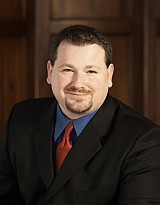The good news is people are living longer; the bad news is people are living longer, and need a way to pay for it. It has some financial advisors wondering if the popular investing strategy “buy-and-hold” still works, and what should replace it.

Chesterfield, MO - May 24, 2016 /MM-LC/ —
The good news is that people are living longer; the bad news is people are living longer, and need a way to pay for it. Anxiety over having enough income in retirement continues to rise, as more and more pre-retirees and retirees fear they’ll run out of money before they run out of life.
A recent survey found only 21 percent of American workers are “confident they’ll have enough money to live comfortably throughout their retirement years.”
Recent headlines haven’t helped, and 2016 saw the worst four-day market start in history. Adding to the anxiety is an agreement in Congress to avoid another government shutdown, which gutted two popular Social Security benefits. The ease and offhanded nature with which they were dropped has recipients wondering what’s next, and how it might affect their long-term retirement prospects.
It all adds up to uncertainty, and has some financial advisors wondering if popular investing strategies like “buy-and-hold,” long touted by investing legend Warren Buffett, still work.
“Buy-and-hold has become buy-and-hope,” says Jerry D. Means Jr., founder and president of Means Financial Group in Chesterfield, Missouri. “The new focus is not just on financial planning, but income planning. So much has happened in the world since buy-and-hold was first popular. It’s much better for today’s investors to be tactical and actively managed in order to lessen their risk and potentially increase their return.”
Means says the change is largely due to increases in the speed and flow of information, driven by advances in communication technology. These advances fuel the need for corresponding changes in traditional financial planning strategies, and gives rise to the next generation of solutions—one of which is income planning.
Products such as exchange-traded funds, as well as fixed-income annuities, means that the guesswork surrounding the amount of income that can be achieved in retirement, at least for day-to-day expenses, has largely been solved.
“We can now have a plan in place, with guarantees in writing, that tells them exactly how much income they’ll have in retirement,” Means adds.
No matter how the stock market performs or the possibility of experiencing an unexpected event that could cause a crash (think the terrorist attack on 9/11 or the crisis of 2008), at least a portion of the investor’s savings are covered, often in writing, and are no longer subject to chance. At the very least, many of these products and strategies are able to keep pace with inflation to ensure their savings aren’t eroded over time, something that can devastate a portfolio over the course of longer retirements and potentially cause severe shortfalls in retirement income.
While proponents of buy-and-hold point to what they say is it’s solid performance-history, critics conclude that it no longer applies, and that such an argument actually reinforces the need for a more tactical, quick-strike approach for getting more from retirement investments; a hands-on approach that provides a better chance of achieving an affordable quality of life for retirees.
For more information about us, please visit http://www.MeansFinancialGroup.com
Contact Info:
Name: Jerry D. Means, Jr., President
Organization: Means Financial Group
Phone: 636-778-1293
Video URL: https://www.youtube.com/channel/UCSFYMHW-3ONAg4grQjesGBQ
Source: http://councilofeliteadvisors.com/liftmedia
Release ID: 116564